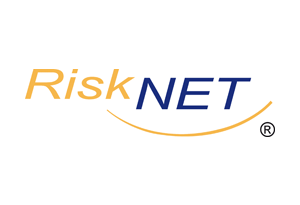After the January 15 currency earthquake, when the Swiss National Bank suddenly walked away from the franc ceiling, currency pegs around the world have come into focus. In Europe, the effort has been on finding parallels with the Swiss franc, with two currencies receiving the most attention: the Danish krone (DKK) and the Czech koruna (CZK). The Danish krone peg to the Euro has come under enough pressure to force Denmark’s Nationalbanken (Central Bank) into cutting rates three times – to negative 0.50% now – and selling what some estimate has been 100 billion Danish kroner (13 billion Euros or around 5% of Denmark’s GDP) in actual market intervention in January. But Denmark is not Switzerland – the Danish krone is a thinly traded currency that has no tradition as a safe haven. As well, Danes have enormous pension assets in other currencies and will fight tooth and nail to preserve their value via the peg. Already, the Nationalbanken has colluded with the Danish treasury to stop issuing longer term government debt in an effort to force Danish krone buyers to hold unappealing, negative yielding, short-‐dated instruments. As well, the Danish peg is the last of the ERM II currencies, in which the peg must also be defended by the ECB itself. The Czech koruna is perhaps a more interesting case study. It is not pegged to the Euro, but the Czech National Bank has declared a 27.00 floor in the EUR/CZK rate as a monetary policy tool to avoid deflation and stimulate industry in the Czech Republic after the central bank policy rate reached the zero bound already in late 2012. The move to a currency floor was in part inspired by the Swiss National Bank’s EURCHF floor. Not so inspiring any more. Speculators may have a better target here, but must still deal with a very thinly traded currency in a currency with a determined central bank. Another difference is that the Czech National Bank (CNB) has established a time horizon for its currency floor, which was never the cast for the SNB. Could this mean that the volatility for CZK awaits once the CNB tries to extract itself from this policy next year? In the nearer term, we’ll find out if there is any immediate pressure on the peg as the Czech national bank releases its latest reserves data on Thursday. Outside of Europe, let’s consider first the oil exporters on the Arabian peninsula, where the pegs with the US dollar should be under considerable pressure as their economies suffer from the collapsing price of oil in USD terms. But these pegs have survived massive strains before and are backed by massive reserves, even as a strong USD enhances the downside economic risks to these economies, even as it aggravated the excesses of the boom during the heady years of 2010-‐2013, when we had both a high oil price and weak US dollar. Further east lies the world’s most important currency relationship: China’s managed peg, or "crawl" against the US dollar. Over the last year, China has finally begun coming to grips with the greatest credit bubble the world has ever seen, and is doing so at a time when the US dollar, to which its currency is most clearly linked, is in a major bull market while the next two largest currencies, the Japanese yen and Euro, have now devalued significantly. Are we about to see a yuan devaluation? Signs of strain are already showing: the USD/CNY exchange rate is within a fraction of a percent of posting a two-‐year high – something that has never happened since the yuan devaluation of 1994. The world will need to gird itself for the consequences of a yuan devaluation. What would it mean? It will unleash another wave of deflationary forces washing over the world and add unbearable further stress on an already shuddering world currency system. Most likely, a yuan devaluation would mean the beginning of the end of the post Bretton Woods currency system since 1971, when Nixon took the USD off gold. As importantly, it will also mean that Asia and China in particular need to step up with a new post-‐mercantilist economic model, even as they try to turn back the clock with a currency devaluation as they desperately try to extract themselves from a deflationary credit bubble Implosion.
 Author:
Author:
Originally from Texas, John Hardy graduated from the University of Texas at Austin with high honors. He has been with Saxo Bank since 2002 in various roles in FX Strategy and Asset Management. Today, John works as Head of FX Strategy. John has developed a broad following from his popular and often quoted daily FX Update column, received by Saxo Bank clients, the press and sales traders. He is a regular guest and commentator on television networks, including CNBC, CNBC Arabia and Bloomberg. Alongside his column and media appearances, John writes regular ad-‐hoc commentary focusing on the major currencies, central bank policies, macro-economic trends and other developments.




